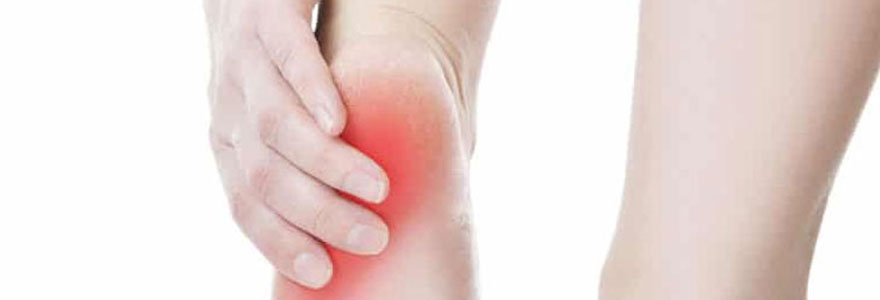
Dr. Amrita Khatri
M.D., B.H.M.S.Book Appointment
Calcaneal Spur

A calcaneal spur, also known as a heel spur, is a bony outgrowth or calcium deposit that forms on the underside of the heel bone (calcaneus). These spurs can be associated with pain and discomfort, particularly when walking or standing. It's important to note that not everyone with heel spurs experiences pain, and they are often found incidentally during X-rays or imaging studies conducted for other reasons.
Symptoms of Calcaneal Spur
- Heel Pain: Sharp, stabbing pain in the heel, especially when taking the first steps in the morning or after sitting for long periods.
- Pain with Activity: Discomfort or pain that worsens with physical activity or prolonged standing.
- Tenderness: Localized tenderness at the heel, particularly where the spur is located.
- Swelling: Swelling or inflammation around the heel area, though not always present.
- Increased Pain with Pressure: Pain may increase when pressing on the heel or when wearing certain types of footwear.
Causes of Calcaneal Spur
- Plantar Fasciitis: Chronic inflammation of the plantar fascia, a thick band of tissue running along the bottom of the foot, often associated with the development of a calcaneal spur.
- Repetitive Stress: Repeated stress or strain on the heel from activities like running, jumping, or standing for extended periods.
- Improper Footwear: Wearing poorly fitting shoes or shoes with inadequate support can contribute to the formation of a spur.
- Foot Mechanics: Abnormal foot mechanics or gait issues, such as overpronation (excessive inward rolling of the foot) or a high arch, can increase the risk of developing a heel spur.
- Obesity: Excess body weight puts additional stress on the feet, increasing the likelihood of developing heel spurs.
- Age: Aging can lead to degenerative changes in the heel bone and surrounding tissues, contributing to the development of spurs.
- Bone Spurs: General bone spur formation due to aging or other conditions can also lead to calcaneal spurs.


